Health Indicators Dashboard
-
The City of Racine Public Health Department has compiled data regarding current health status and other factors that impact the well-being of Racine residents and visitors:
Mental Health and Substance Abuse
-
Administrative Statistics
The City of Racine Public Health Department provides many valuable services to the citizens of the City. Protecting the health of individuals, the community, and the environment leads to a better quality of life for residents and a cleaner region that is attractive to employers and visitors. The Public Health Department strives to maintain a high level of service and a diverse range of programs within budgetary constraints. This section contains information on the Department’s staffing and program statistics.
Service Trends

Enrollments in the Wisconsin Well Woman Program, covering Racine County and Suburban Milwaukee County, experienced a significant decline after 2019 but have started to rebound as of 2023.

Program changes, reductions in funding and changes in policy, have caused the number of clients annually served through the Community Health Division’s programs to fluctuate from year to year. There is general trend that service visits increase after the year 2022 following a decrease in 2019.
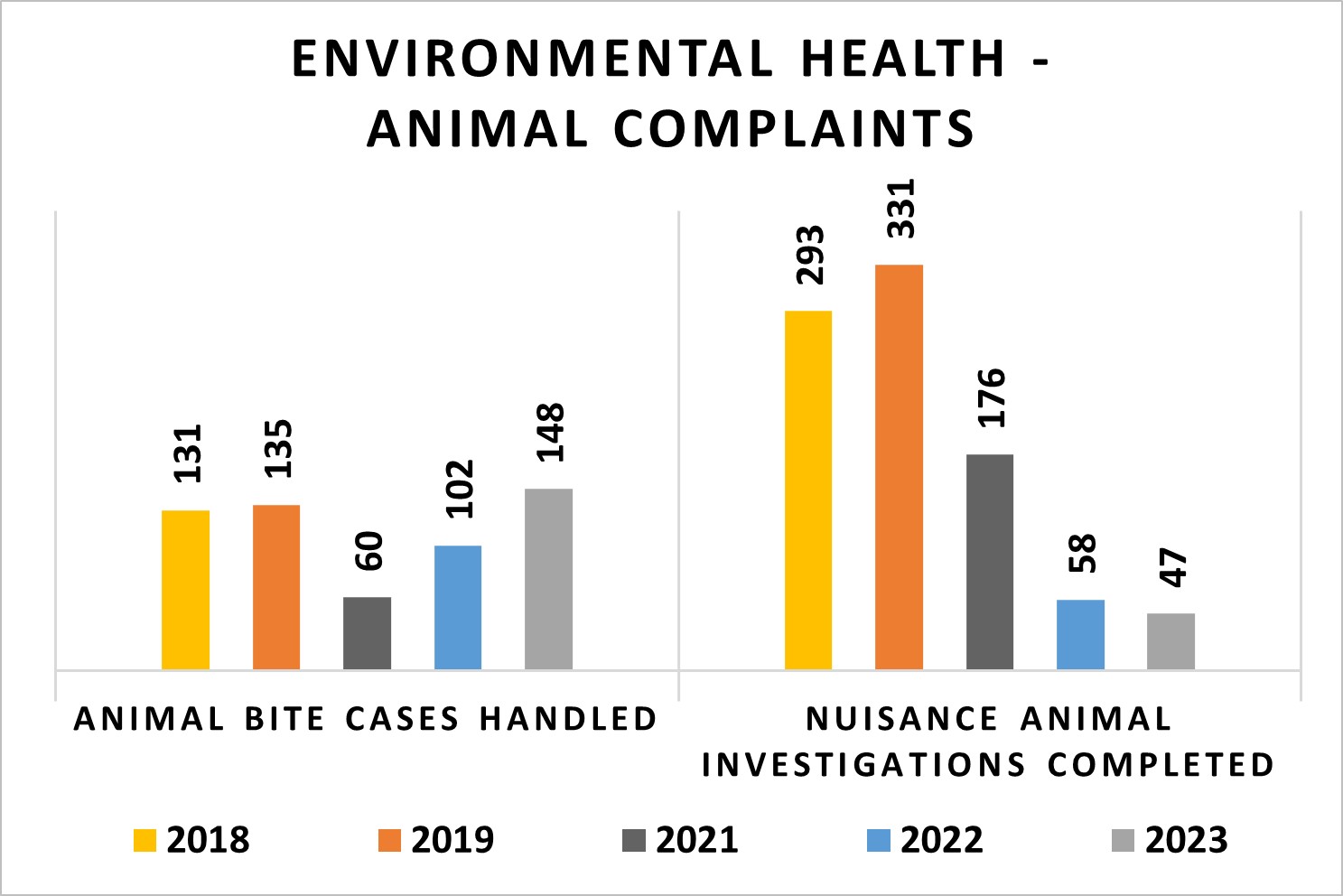
Animal bites have remained stable in recent years, from 2019 to 2021, but have recently increased again. Nuisance cases were prevalent in the early years of 2018 but have since decreased significantly, dropping by more than 80% from their peak in 2019.

Dog licensing saw a significant decline after 2019 but began to slowly increase again in 2023. In contrast, cat licenses, although much fewer in number, experienced little change after 2019 and remained steady throughout the period from 2018 to 2023.
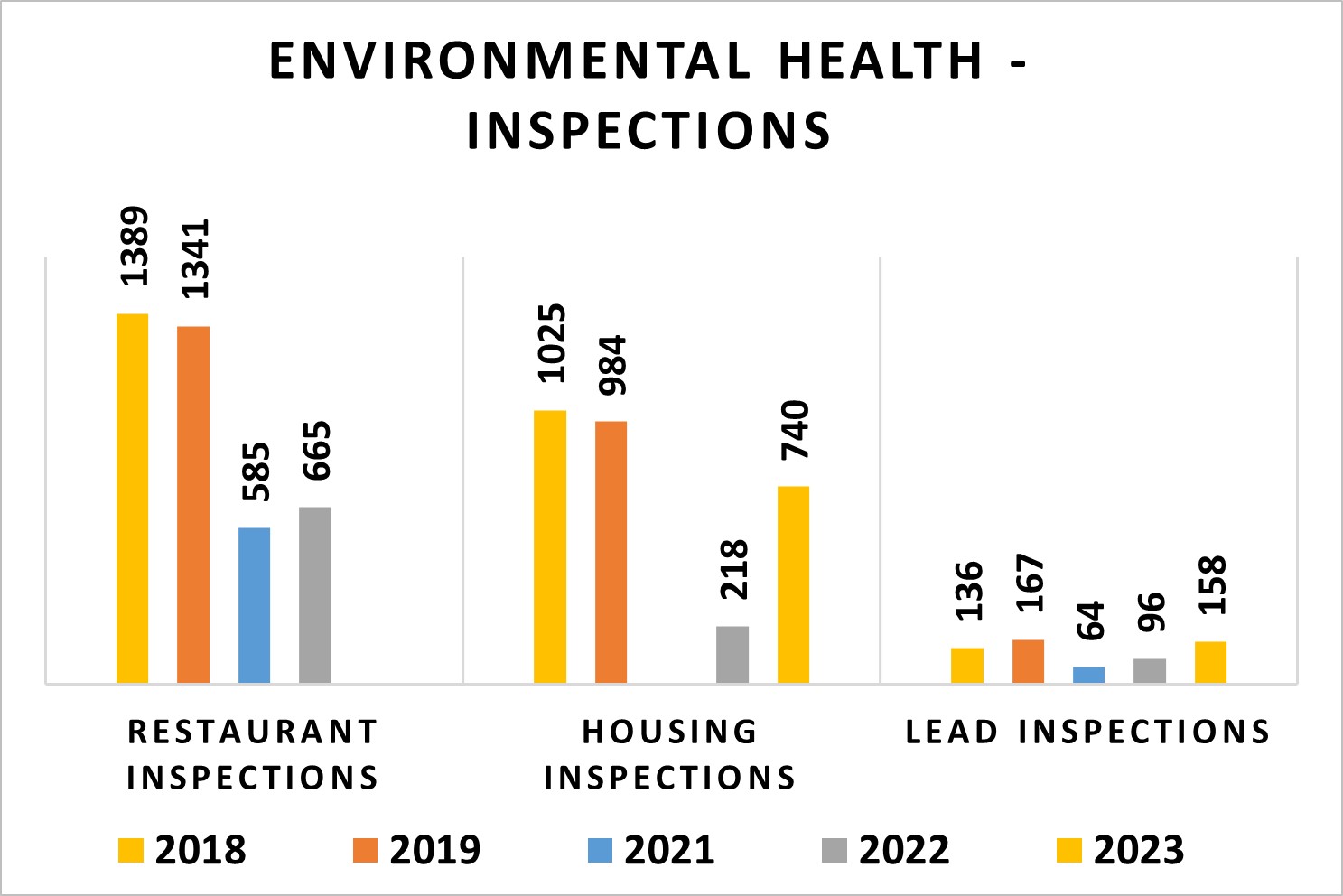
All forms of inspections, including those for restaurants and housing, saw a significant decline after 2019, although lead inspections remained relatively stable. Since 2019, inspections across all locations have begun to increase once again.
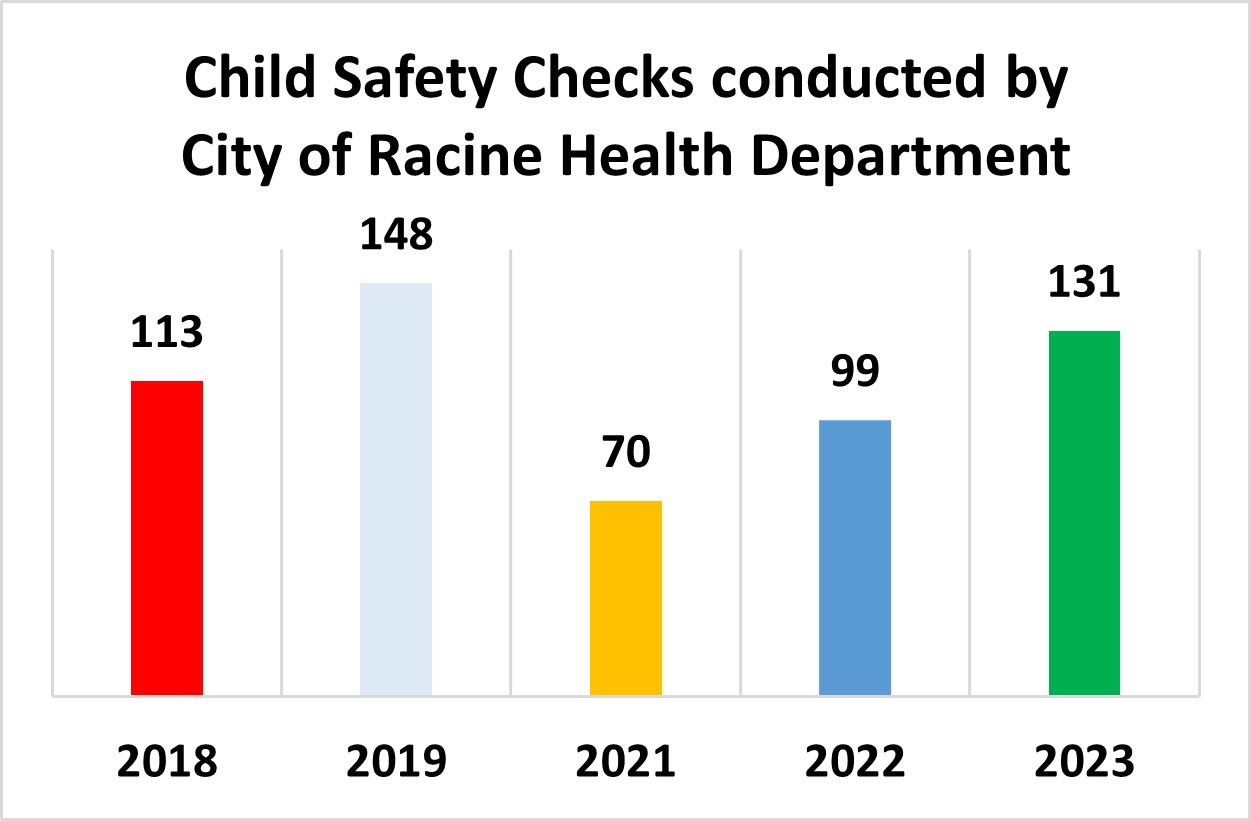
The child safety checks consist of the child passenger safety checks and cribs for kids safe sleep education provided by City of Racine. Since 2018, the City of Racine has provided more than 550 child safety checks with 2019 being the highest with 148.
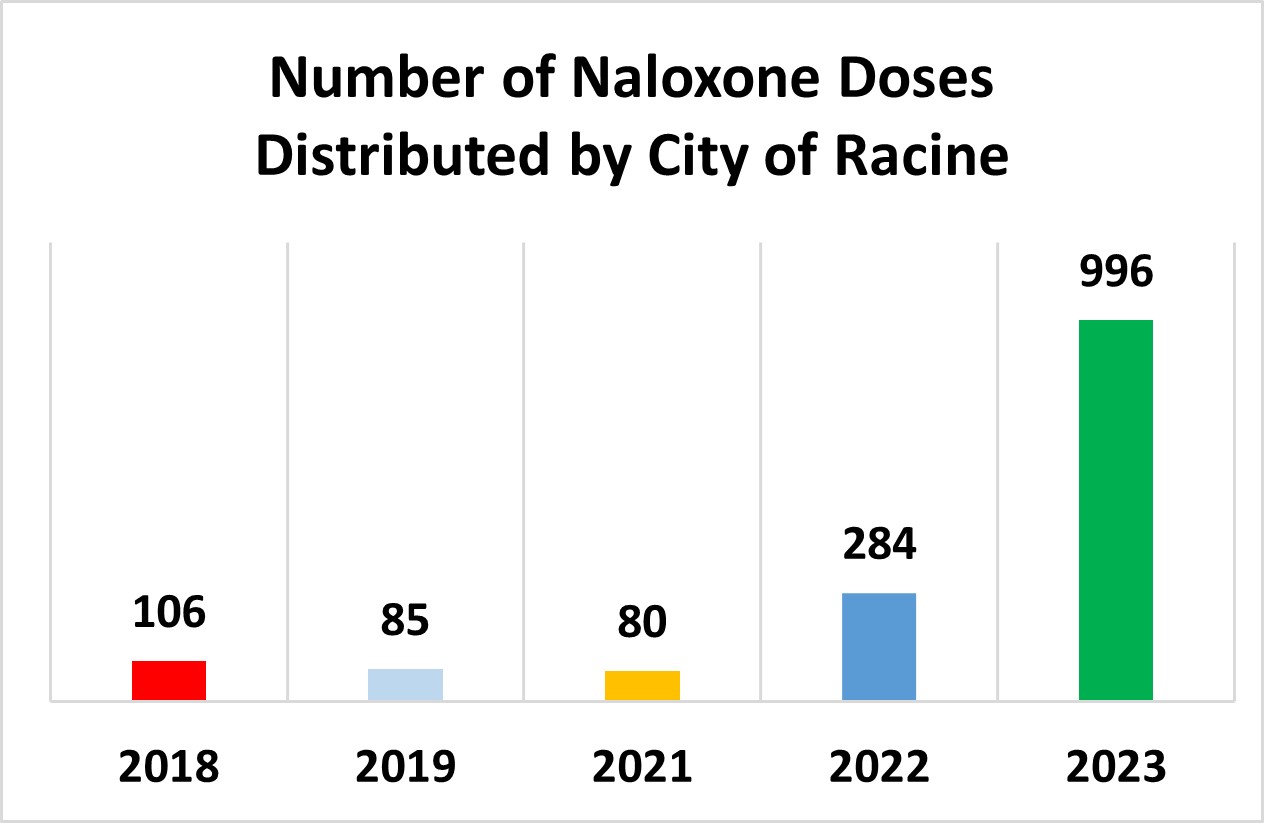
Naloxone is a medication that reverses the effect of an opioid overdose. Over the course of past couple of years, the City of Racine Public Health Department has distributed more than 1550 doses from 2018 to 2023, with each year increasing with the effectiveness of saving lives from overdose.
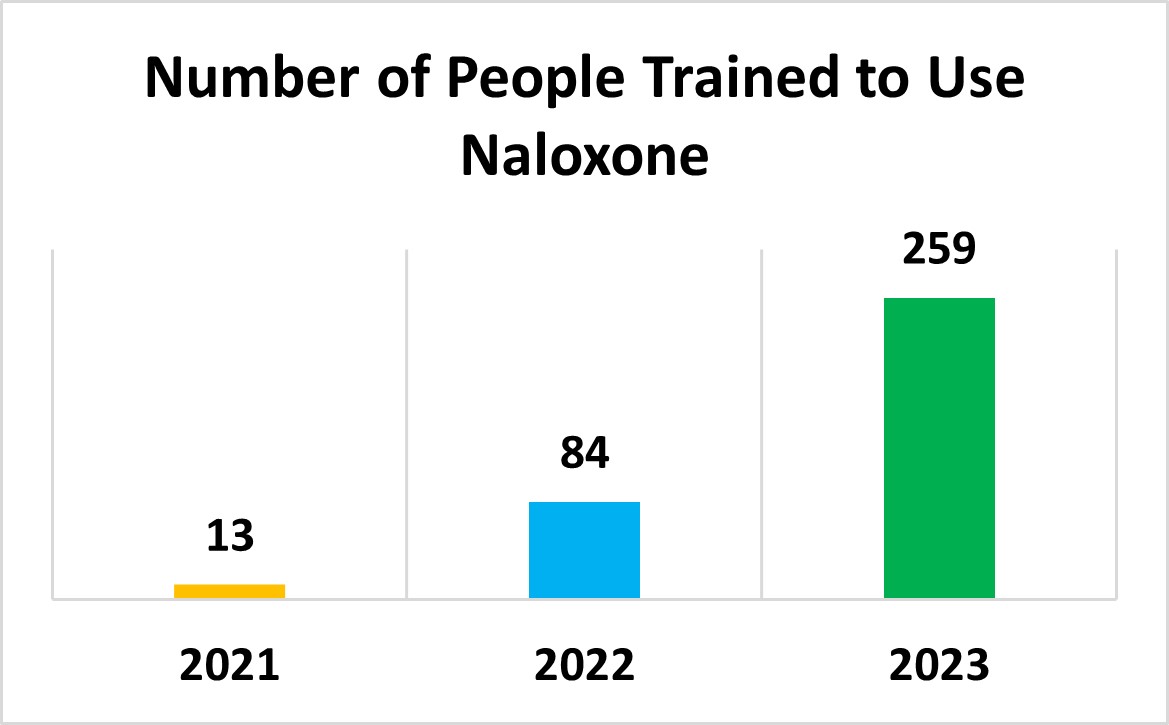
Since 2021, 356 community members have been trained to effectively administer Naloxone, a medication crucial for reversing the life-threatening effects of opioid overdose and potentially saving lives.
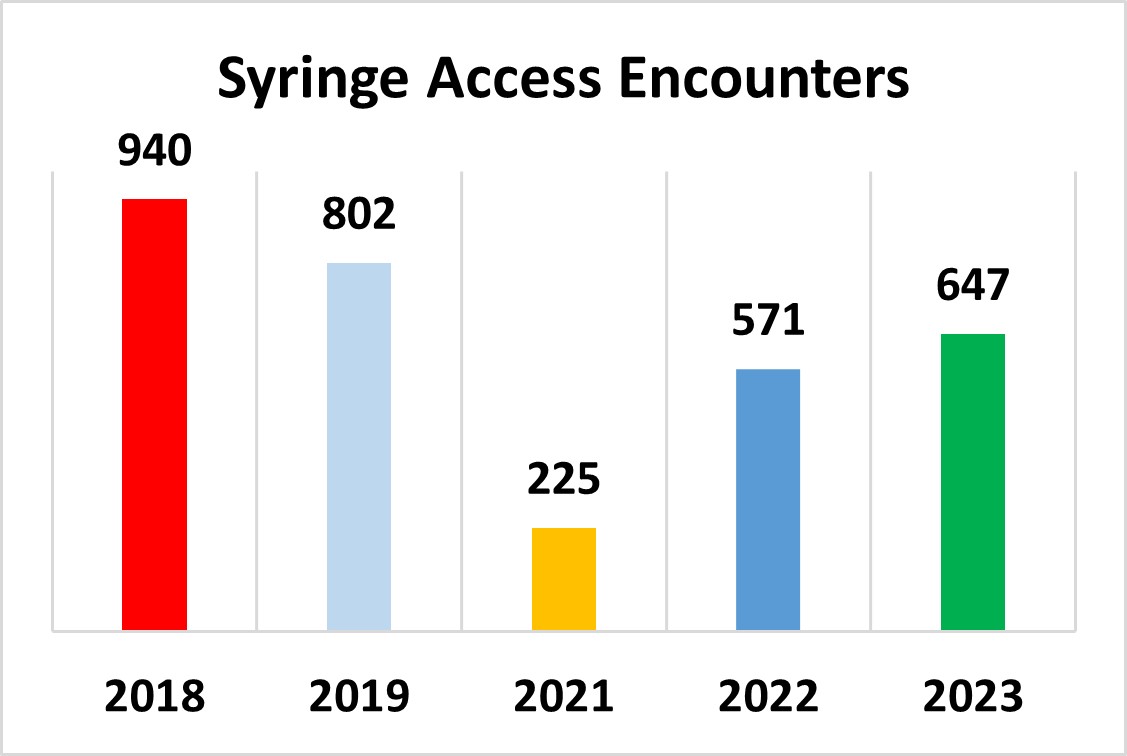
The City of Racine provided more than 3100 safe and accessible syringe access encounters to it’s community from 2018 and 2023. With a sharp decline in 2021, it slowly started to increase in numbers of encounters for 2022-23.
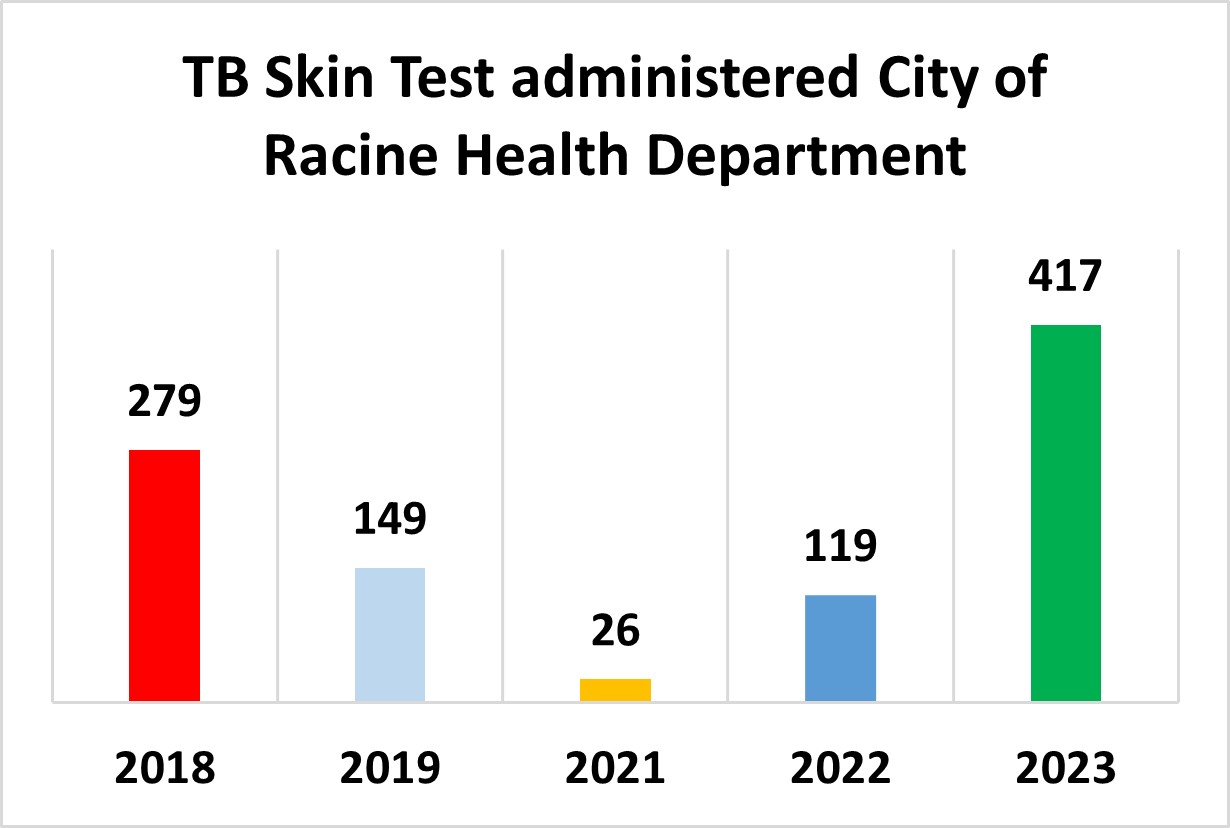
The TB skin test is a tool used to test for latent and/or active TB infection. From 2018 to 2023, there has been a total of 990 test conducted by the City of Racine Health Department with 2023 being the highest with 417 skin test.
Racine County’s Health Rankings
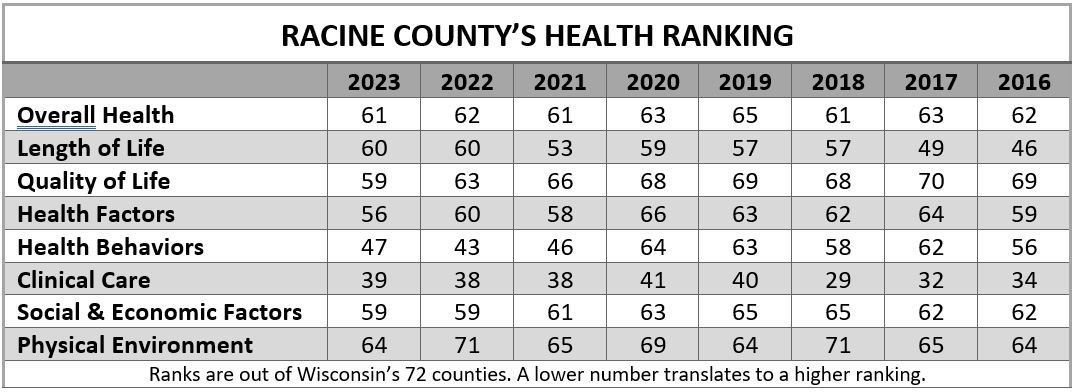
The County Health Rankings from the Robert Wood Johnson Foundation and the UW Population Health Institute ranks Wisconsin counties in several categories. Racine’s rankings are shown in the table above. The lower the number, the better the county’s ranking. For example, Racine County’s Overall Health ranking means that it ranks 61st out of 72 counties in the state, and that 60 counties in Wisconsin have better overall health. Racine County ranks low in the Physical Environment category, but fares better in the Clinical Care and Health Behaviors measures.








